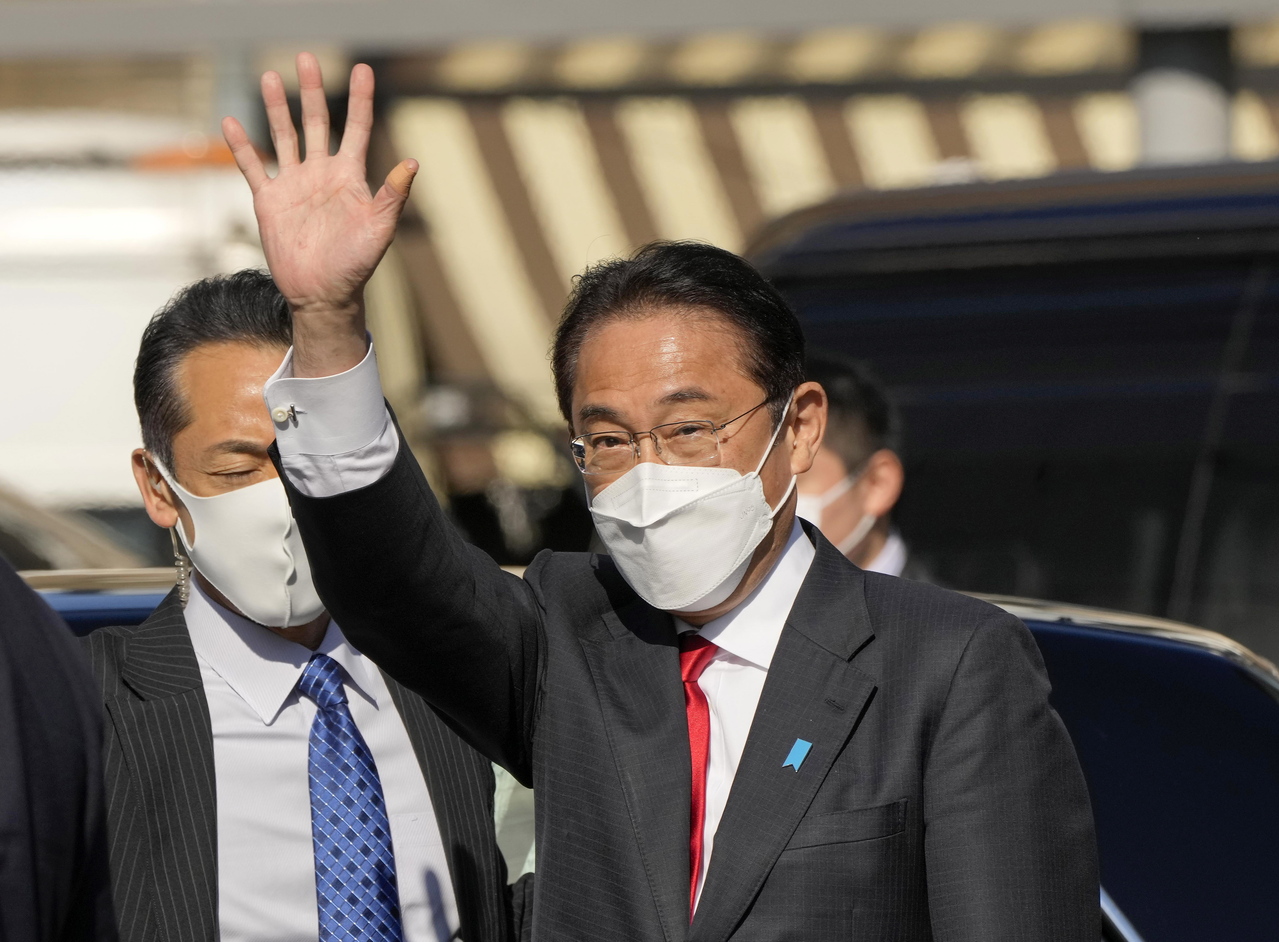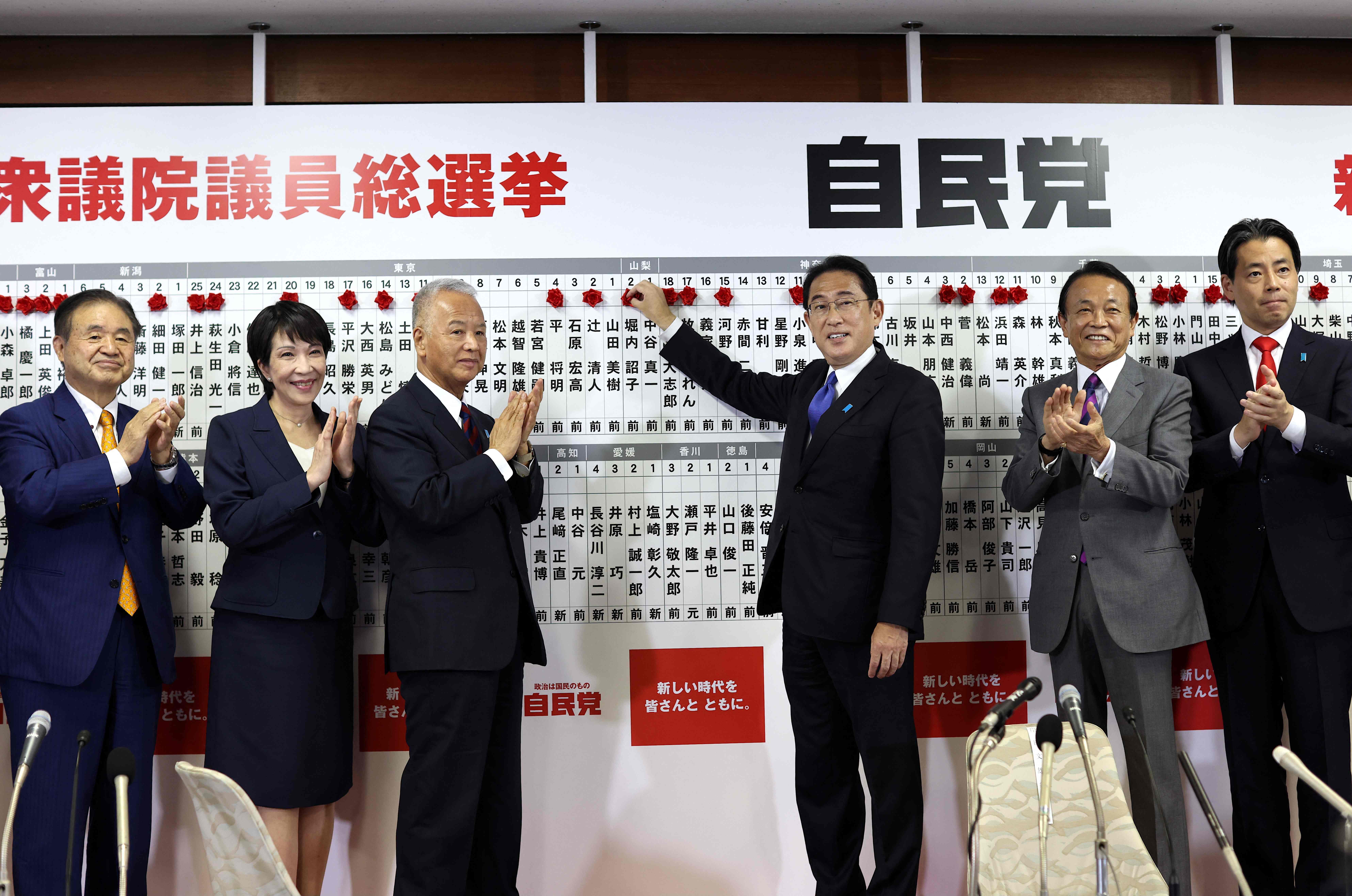Japan PM Kishida's ruling LDP ekes out majority in general election
Sign up now: Get insights on Asia's fast-moving developments

Prime Minister Fumio Kishida owes his rise to the top to elite LDP power brokers.
PHOTO: EPA-EFE
Follow topic:
TOKYO - Japanese Prime Minister Fumio Kishida's Liberal Democratic Party (LDP) managed to retain its majority in Parliament in a general election on Sunday (Oct 31) but the result might leave his government weakened.
The ruling LDP is expected to win up to 253 seats, according to a forecast by public broadcaster NHK, sharply down from the 276 seats that it held previously.
The LDP and its coalition partner, Komeito, are forecast to win up to 288 seats - down from the 305 they jointly held previously in the 465-seat Lower House.
Mr Kishida claimed victory, having aimed low and targeted a coalition majority of at least 233 seats. But rather than being exuberant in the late evening on Sunday, he adopted a reserved tone as several veteran LDP were ousted in their districts.
"The ruling bloc has secured a majority, and this means we have won the trust of the people," Mr Kishida said. But he added that the result "will have an impact on the steering of the government", and had given him "a lot to think about carefully".
LDP secretary-general Akira Amari, 72, whose support propelled Mr Kishida to victory in the LDP presidential election race in September, was among those who lost.
As at 12.30am (11.30pm Singapore time), the ruling coalition was confirmed to have won 273 seats, 246 for the LDP and 27 for Komeito.
The opposition, meanwhile, was confirmed to have won 147 seats. This includes 86 seats for the left-leaning main opposition Constitutional Democratic Party (CDP), and 34 seats for the centre-right Nippon Ishin no Kai (Japan Innovation Party).
Results for another 45 seats were still pending.
All eyes were on whether the LDP could eke out a simple majority on its own in the Lower House in what was framed as a tightrope election for the ruling party. Media forecasts showed as many as 80 too close to call races.
The drop in the LDP's haul has been attributed to voters rebuking the ruling party for arrogance - following a series of nepotism and cronyism scandals over the years - and for being out of touch with the public.
The CDP and several other smaller opposition parties - though excluding the Nippon Ishin no Kai - also sought to field unity candidates to avoid diluting the anti-LDP vote.
Mr Kishida declared that he would call for the election on the day he took office on Oct 4. But his rise to the top was put down to elite LDP power brokers and he was not seen as the popular choice among the public.
Sunday's likely outcome, which comes despite Mr Kishida crisscrossing the country on chartered flights to appeal to voters, showed that he has struggled to connect with them.
"It's a rather underwhelming outcome for Kishida and the veteran losses might seriously tarnish his reputation even before he can set out to govern," Sophia University political scientist Koichi Nakano told The Straits Times.

He noted that Mr Kishida's lack of clarity in his policy messages, particularly over his pledge to create a "new form of Japanese capitalism".
This appears to have been watered-down and shape-shifted to the point where "nobody really knows what he represents", Dr Nakano added, noting how Mr Kishida had once emphasised distribution of wealth only to now prioritise growth.
Ideas that roiled stock markets, such as taxing capital gains, have been ditched.
In one of his final campaign stops on Saturday evening, Mr Kishida received a smattering of polite applause when he addressed a packed crowd in front of the Yotsuya train station in Tokyo, his voice cracking as he tried to enthuse voters on his economic vision.
A Kyodo News projection showed voter turnout at 55.79 per cent, a rise of 2.11 percentage points from the 53.68 per cent turnout in 2017.
The result means Mr Kishida will at least get a stay of execution.
"As long as Kishida succeeds in his goals of tackling Covid-19 and economic recovery, there is no critical point for Kishida for the next eight months or so," Dr Mikitaka Masuyama of Japan's National Graduate Institute for Policy Studies said.
The LDP will face an Upper House election in July next year. A dismal showing then could result in him becoming yet another revolving door leader following his predecessor Yoshihide Suga, who lasted only one year in office.

